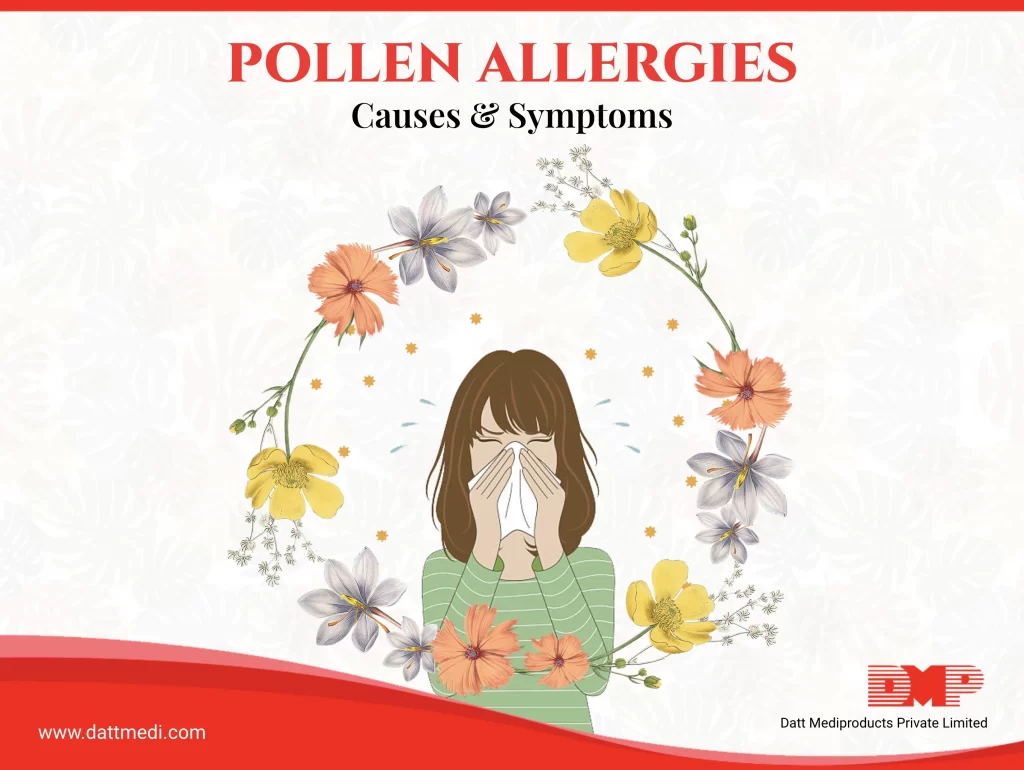
With the spring and summer season upon us people may be seeing pollen allergy symptoms flare-up. In these unsettling times, many of the people who have pollen allergies might be wondering if those symptoms are due to allergies or something more serious.
Pollen allergy, also known as Hay Fever, is defined as an allergic reaction to the pollen dispersed through air. During the spring and fall time, tiny pollen grains are released from plants. Pollen is a fine powdery substance produced by all plants to fertilize other plants of the same species.
Pollen is so fine that it can be easily inhaled through nasal passages and mouth. The body identifies the inhaled pollen as an outsider and the immune system starts to produce chemicals to fight the pollen leading to allergic reactions affecting sinus and other parts of the respiratory tract.
Do You Know?
The scientific name of Pollen Allergy is “Seasonal Allergic Rhinitis”.
How do the symptoms differ?
Unfortunately, there are a few symptoms that do overlap between the two like a cough and the lungs are throat being affected. But the Covid-19 presents with a fever and a loss of smell and taste, which are not symptoms of allergic reactions to pollen.
The main symptoms of pollen allergy that differ from COVID-19 symptoms are sneezing, itchiness in the eyes and nose and throat, watery eye, and postnasal drainage. Also, seasonal allergies will rise and fall in severity as and when you go outside, but with the COVID-19 virus, it’s a steady ebb.
Let’s learn a little more about the Pollen Cycle.
The pollen when inhaled releases some water-soluble, but usually harmless, proteins on the respiratory lining of the affected person. These proteins are considered a threat by the body activating the immune response, thereby releasing IgE antibodies. When these antibodies attach to mast cell receptors, histamine is released which is the major protein triggering pollen allergy symptoms.
Various Types:
There may be different types of pollen allergies depending upon the type of pollen inhaled.
– Allergy due to the pollen of trees like birch, oak, cedar, olive, hazelnut, etc.
– Allergy due to grasses like Ryegrass, Timothy.
– Allergy due to weeds such as ragweed, nettle, sorrel, sagebrush, or tumbleweed.
Do You Know?
Plants like roses and trees like cheery & pear, which get fertilized by insects, like roses usually do not cause allergic rhinitis.
The Pollen Allergy Treatment:
Treatment of pollen allergies includes medications some of which are:
ANTIHISTAMINES: These over the counter medications can come in the form of pills, nasal sprays, or liquids. Antihistamines usually relieve allergy symptoms like sneezing and itchy nose & eyes.
LEUKOTRIENE RECEPTOR ANTAGONISTS which block the action of certain allergy-causing neurotransmitters relieving bronchoconstriction.
NASAL CORTICOSTEROIDS, in a form of nasal sprays, works as anti-inflammatories reducing nasal congestion and allergic rhinitis. But corticosteroids have some side effects too.
DECONGESTANTS: Available in the form of sprays, liquid drops, or pills, the nasal decongestants help reduce inflammation thereby relieving nasal stuffiness.
We @ Datt Mediproducts understand that you may be allergic to different kinds of pollen from different plants/trees. If you wish to combat pollen allergies, you must understand and keep a track of pollen count in your area through a weather forecast website.
The best way to fight pollen allergies is to stay indoors during the worst of the pollen season and to take your allergy medicines. If you have never had allergy symptoms before you should call an allergist or an immunologist for diagnosis and treatment. If you are struggling to distinguish your symptoms please contact your doctor for advice.







